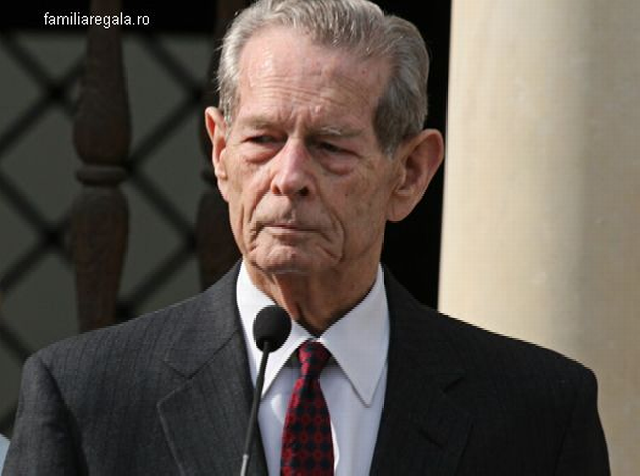70 years since the abdication of King Michael I
On December 30, 1947, King Michael I was forced to abdicate by the communist government and to go into exile. A new form of government in the history of Romania was installed, a republic, but an illegitimate one, in terms of being imposed

Steliu Lambru, 08.01.2018, 12:39
The former sovereign spoke many times of the day that changed the history of contemporary Romania, the day when the communist leaders presented him with abdication as a fait accompli. Many other testimonials described the heavy atmosphere that day, prefiguring the brutality of the regime that was to come. One of the testimonials was provided by sub-lieutenant Milos Pavel of the Royal Guard Battalion, who commanded the last honour guard procession for the king, on December 30, 1947.
The Royal Guard Battalion was under the Ministry of National Defence, just as any other unit. The officers had the same pay as the rest, but their parade uniforms were special. The battalion had four companies, two for each royal residence, one in Bucharest and another one in Sinaia. Each company had around 100 troops, divided into three platoons. The battalion carried small infantry arms.
In a 1997 interview with Radio Romania’s Centre for Oral History, Milos Pavel recalled the process to be admitted into the Guard Battalion: “The officers admitted into this elite unit of the Romanian armed forces were selected based on their results in military academy, especially if they had graduated from foreign schools. Others qualified on merit in their military activity elsewhere in the country. Social origin did not play a role in the selection. I was born into a peasant family, and the three comrades from my class who were assigned there were middle class, clerks and merchants. The social criterion had no meaning whatsoever. However, what was mandatory was having good results in school and certain physical traits: being over 1.80 m in height and pleasant features, since the guard was part of protocol missions.
In the autumn of 1947, the company on guard at Peles Castle in Sinaia was commanded by Captain Mihail Georgel. Milos Pavel was in charge of one of the platoons on December 30, 1947, and was supposed to be replaced by an officer who had gone on Christmas leave: “On the morning of December 30, 1947, at 8:30, I was the last guard officer at Peles Castle who had the great honour to present arms to their majesties, King Michael and Queen Mother Elena, as they left for Bucharest, as protocol dictated. At noon that day I handed over the guard shift to the comrade returning from Christmas leave, and prepared to leave to celebrate New Year’s Eve with my parents and siblings in a village in Ramnicu Sarat county. In order to get my pay, however, I had to go to the Victoria Palace guard headquarters in Bucharest, where the treasury was. Around 1:00 PM I left for Bucharest, hitching a ride on a Palace administration truck transporting civilian personnel and supplies between residences.
The communist government replaced the royal guard with units of the Tudor Vladimirescu division, recruited from among former Romanian prisoners taken by the USSR on the eastern front.
Milos Pavel recalls his arrest when he got to Bucharest: “The weather was bad, it was winter, it was biting cold and foggy, especially in the mountains. The traffic was terrible, and we got to Bucharest around 4:00 PM, and wanted to go into Victoria Palace through the back entrance. While travelling, we had no sign whatsoever that something major had occurred in the life and history of the Romanian people. The gate was normally manned by a soldier from the Bucharest guard company, who knew the markings on all the palace guard vehicles, usually saying SR, Royal Service. Now, however, we were met by a couple of guards armed and clad like Russian soldiers, except they spoke Romanian and on their left arm they wore bands of the Tudor Vladimirescu Division, the mark of treason and shame. That was the astral moment when my spirit and being were pierced as if by a bolt of lightning issued from the tense atmosphere that reigned over everything that autumn. The inevitable had occurred, and we went into the unknown. The civilians in Victoria Palace were escorted to administration, and I, as an officer of the guard, was led to headquarters. Here I met some of my comrades, officers in the Guard Battalion, who had been caught there by events. They were all under arrest, having been disarmed, held in the officer quarters, while the soldiers, also disarmed, were held in their dormitories.
Thus fell the monarchy, the last bastion of Romanian democracy facing the onslaught of the communist regime. After a while, people got resigned to the situation, and started a new life, in line with the times.






























